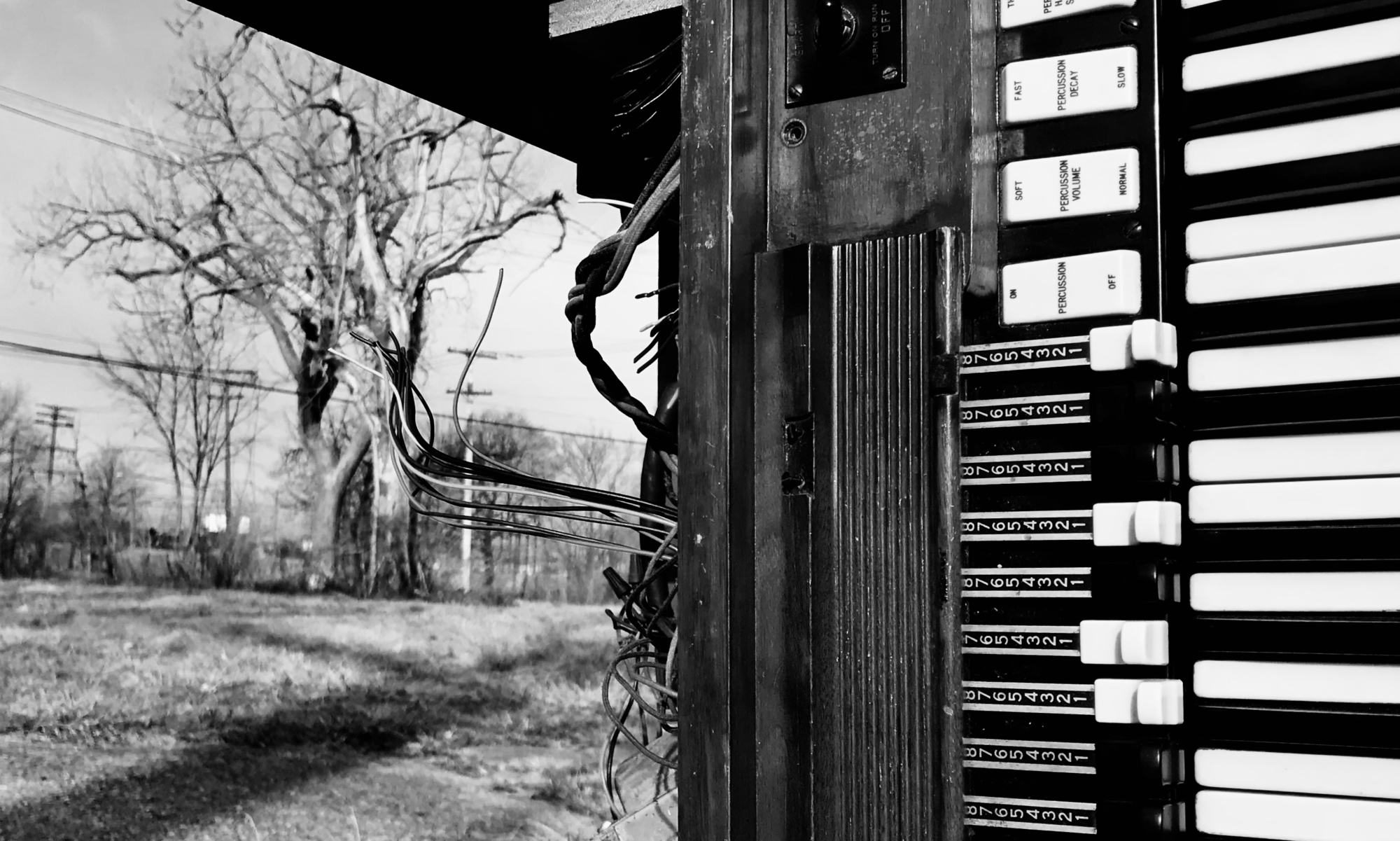November 18, 2021
White House EJAC Public Meeting
Eden Bloom – Public Comment
This written comment is submitted in addition to my spoken comment made during the WHEJAC public meeting on November 17-18, 2021. Details around this issue are changing rapidly so this comment reflects what I am aware of as of November 18, 2021.
I would like to thank the White House Environmental Justice Advisory Council for this opportunity. I would also like to recognize the environmental justice communities across the country and their righteous appeals to this body. I also want to reflect and lift the commenters from Flint; the latest victims of the discrimination and injustice inherent in the state of Michigan’s air quality permitting process and the Michigan Department of Environment, Great Lakes and Energy, or EGLE.
My partner, our 3 young children and I live on the eastside of Detroit. Our house is in what is referred to as the ‘impact area’ of the newly expanded and massive Jeep Stellantis Detroit Assembly Complex. I am also an organizer with Detroit People’s Platform and have been working with my neighbors on Beniteau Street, who live in closest proximity to the plant.
While my family and I live only blocks away from the plant and are impacted by the expansion, I’m presenting here to support the efforts of my neighbors on Beniteau. It is my belief that if the impact of this site is adequately mediated and remedied for those living right up on the complex, my family and everyone living around the plant will benefit.
Since the expansion was announced in early 2019, EGLE has hosted 3 public hearings and approved 2 air quality permits. My neighbors and I, along with advocates and experts have participated in each public hearing EGLE has hosted.
During these hearings a primary concern, repeated through the public comments is the extreme asthma hospitalization rates in the zip codes around the site. Experts called for environmental, economic and public health impact assessments to be completed before making a decision. Others called out the environmental racism inherent in moving ahead with the expansion in a nonattainment zone for ozone by decreasing emissions at a suburban plant to offset the increase in our 94% African-American, majority Black backyards
A recent letter to EGLE from elected officials noted that EGLE was aware of a high level of preexisting respiratory conditions in the area before granting permits to the company. Solid data, emotional pleas, and righteous outrage were shared but couldn’t be heard. EGLE considers air quality permits in a vacuum and by doing so makes the residents most impacted invisible. EGLE’s website reads “Comments EGLE can consider include technical mistakes, grammar and spelling mistakes, other rules that should be considered, and other items which should be included or removed.” Further, and more to the point, “Some issues EGLE cannot consider include popularity of the action, emission sources that are not part of the action, indoor air pollution, traffic, hours of operation, noises and lighting, and zoning issues.”
This is where EGLEs inherent race-problem perpetuates itself. How is it possible for our state regulators to protect frontline or environmental justice communities they can’t see or hear? The parameters they have established to make their decisions also become the justification of their abuse. They can’t consider the national study linking long-term exposure to air pollution and COVID-19 mortality. They can’t consider that in the U.S., Black children suffer disproportionately from asthma, and are seven to eight times more likely to die of asthma than white children. The fact that communities of color face nearly 40% more exposure to toxic air pollution than white communities is not just lost on EGLE, it can’t be heard.
The new Jeep Grand Cherokee L went into production this summer and residents have reported an increase in odors and health issues since. EGLE has issued multiple violations that stem from their having to respond to resident complaints. Being overwhelmed by paint fumes, burning eyes, itchy throats and headaches, Beniteau residents have been calling the state’s Pollution Emergency Alert System (PEAS) hotline.
On Monday, September 20, 2021 EGLE filed a violation notice against Stellantis. A second air quality violation was issued on Monday, October 14th. On Wednesday, November 3rd a third Violation was issued against Stellantis’ Mack Assembly Plant. These violations and the subsequent engineering issues uncovered in the process have not been adequately responded to by EGLE or Stellantis. Jeeps continue to roll off the line and as this statement is being prepared, fumes can still become overwhelming on the street. Residents continue to call in with complaints.
The fact that they are being made to live through violations and over-exposure has led many residents to believe that EGLE exists only to facilitate the operation of polluting industries rather than to protect the most vulnerable and disproportionately impacted in Michigan.
Earlier this month, on November 8, 2021, my neighbors on Beniteau filed a Title VI Civil Rights complaint against EGLE with the EPA. The complaint focuses on the racial disparities in the state’s permitting process and details the impact of EGLE’s decisions on the residents who live closest to the plant. “When my eyes start to burn, I start to become more afraid of all the things I can’t smell than those that I can” one of my neighbors shares in the complaint.
Another neighbor on Beniteau shares “The migraine headaches, and the burning in the eyes, and tightness in my chest… I just know when I’m out too long, I get that way, but I can’t say today is going to be worse than tomorrow. I know yesterday it was just too much. I was crying.” I am also submitting the full Title VI complaint with this comment. I encourage council members to read these stories from residents who have been greatly impacted by the failure of state regulators.
The complaint states that: “[t]he decisions by Michigan’s Department of Environment, Great Lakes, and Energy (EGLE) allowing Stellantis to significantly expand its facilities continues the discriminatory legacy of requiring communities of color to bear the disproportionate burden of the industrial pollution generated by all of society. Unfortunately, the Stellantis Complex (“Facility”) does not exist in isolation.”
Last Minute Update: Based on public pressure building around the violations and the Title VI Civil Rights complaint on November 18, 2021 EGLE issued a press release stating that they were going to fine Stellantis. While a step in the right direction, the statement is extremely non-committal.
Residents’ current post-violation needs include:
- ● Immediate emergency relief including but not limited to emergency housing, windows, roof repair, weatherization, HVAC improvements, air purifiers, filters, public education, medical and health services.
- ● Remedies that include an “out of the box thinking” Supplemental Environmental Plan (SEP) that adequately responds to resident need for home repair, voluntary relocation and others based upon individual assessment.
- ● Rapid response through a fast-tracked enforcement process with EGLE and the EPA on the Title IV Complaint.
- ● Environmental, health and economic impact assessments must be conducted to determine the most impacted and most vulnerable. Residents have requested individual assessment to determine what will be needed to make their homes safe to live in or for successful voluntary relocation. Assessment, whichwas not included as part of the permitting process, is essential to correcting course and determining adequate remedies. It is also vital that assessment be considered as part of EGLEs ‘job’ and not as a remedy. Assessment is a tool to be used to determine remedies.
To conclude, we live in a majority Black city that has been subject to the suspension of democracy through emergency management and economic restructuring through municipal bankruptcy. In Detroit we see violence against Black bodies, families and communities show up every day in public policy and decisions made by those in power.
Detroiters have witnessed this through mass water shutoffs, mass foreclosures and evictions, and through a massive redistribution of public wealth and resources into the hands of developers that are predominantly wealthy and white and to global corporations like Ford and Stellantis.
The fact that decision makers and regulators approved this project based upon economic promises and flawed engineering models rather than the environmental, health and economic impacts of those most directly impacted has led to this situation; Detroiters are being made to live in and through violation after violation.
I ask your support in addressing the injustice inherent in the states’ permitting process and in pushing for relief and remedy for Beniteau residents and anyone whose air quality and quality of life has and is being impacted by these failures. Again, I would like to thank the White House Environmental Justice Advisory Council for this opportunity.

